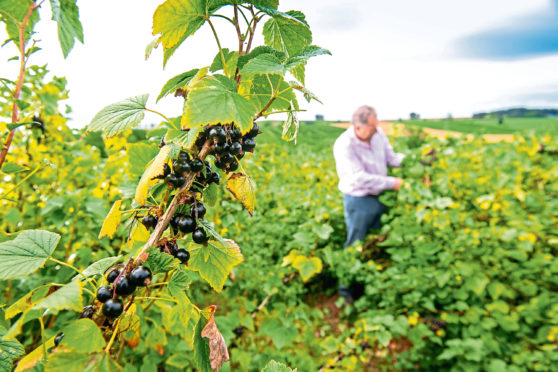The makers of popular fruit drink Ribena have invested more than £500,000 in a five-year project with the James Hutton Institute to develop new varieties of blackcurrant.
Funded by Lucozade Ribena Suntory (LRS), the programme will develop new climate-resilient blackcurrant varieties after previous research from the institute highlighted the threat that climate change poses to blackcurrant farming.
The move continues the long-standing relationship which began in 1991, between LRS and the institute.
Since then, the global brand has invested more than £10 million to improve the sustainability and quality of British blackcurrant crops.
LRS uses 90% of the blackcurrants grown in Britain to make Ribena and around 10,000 tonnes are harvested from British fields each year to keep up with consumer demand for the soft drink.
The plants need a period of sustained cold weather in the winter, without which they yield less fruit and have a shorter lifespan.
The UK’s 10 hottest years on record have all occurred since 2002 and winters in the UK are getting gradually warmer.
This is one of the challenges LRS and the institute will continue to address over the next five years, aiming to develop varieties of blackcurrants that can cope with these changes.
Dr Dorota Jarret, a soft fruit breeder at the institute’s commercial subsidiary, James Hutton Limited, welcomed the investment. She said: “Continuous investment from LRS is a forward-thinking move towards securing the future of the crop and we are delighted to play a part.
“Development of climate-resilient varieties is high on the James Hutton Institute’s agenda and blackcurrants are an important species in understanding the effect of climate change.”
This partnership aligns with LRS’s Growing for Good vision which includes commitments to both biodiversity and sustainability in line with the UN Sustainable Development Goal for Life on Land.
Blackcurrants have been bred at the James Hutton Institute since 1956 and now account for approximately half of the blackcurrants grown in the world.
jimillar@thecourier.co.uk
